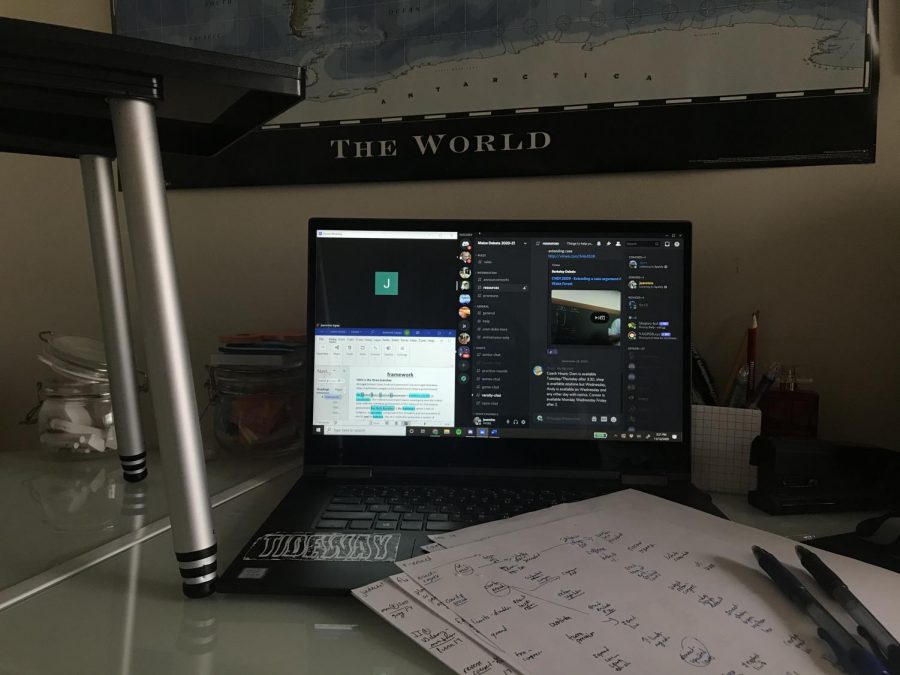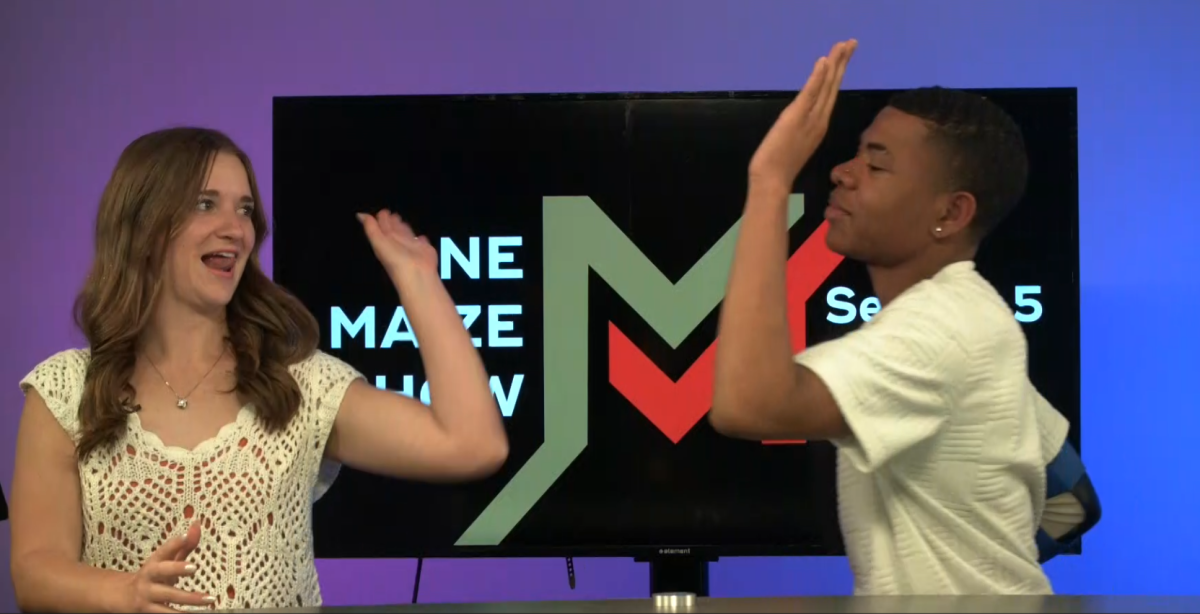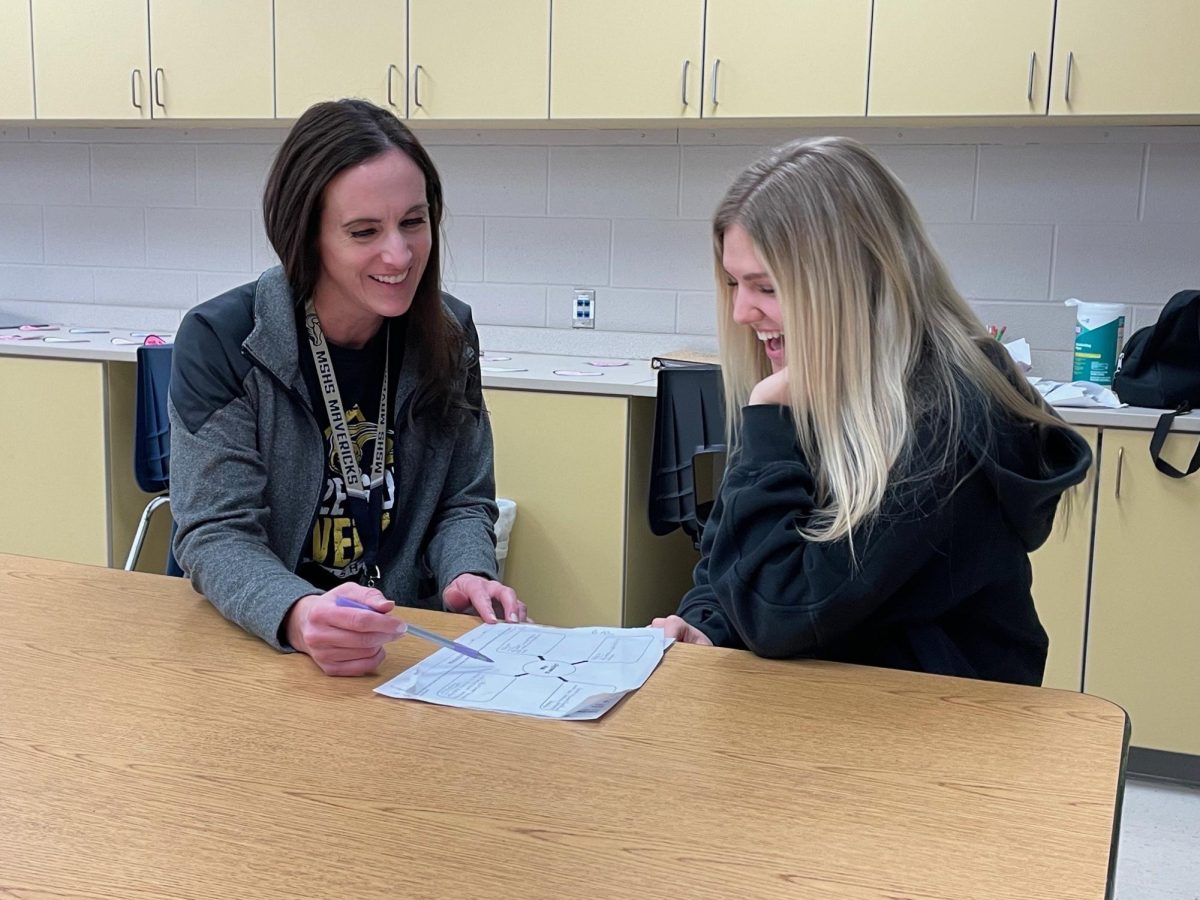Debate members adapt to their new “normal”
November 15, 2020
As the school year started, students involved with debate had to adapt to no longer having on-site tournaments and instead spending long hours on Zoom calls.
Before the pandemic, tournaments would be held at various schools, and debaters would get up early to ride on a team-bus to them. In between their rounds, they would converse and recharge. This year, tournaments look a lot different.
“We all wake up early, make sure to check in on Discord with one of our coaches, wait, join our room to start the round, finish the round and then wait some more,” sophomore Emily Guiliante said. “Of course, we message each other on Discord joking about stuff and asking questions afterward, but it’s not the same as it would be if we were in person.”
Along with the lack of face-to-face interactions, debaters think this online form of debate is much more exhausting.
“It doesn’t feel as competitive as before,” sophomore Ashley Wright said. “In between rounds, we are just sitting around, so it makes it really easy to be tired.”
“I used to be able to debate eight rounds straight and be ready for more,” senior Avery Dover said. “Now I can barely get through two. It is so tiring because we don’t get the teammate comradery. We don’t get the fun of traveling to a tournament or the in-person interactions with friends from other schools. It is just sitting at home normally in our bedrooms, looking at a screen.”
Despite the difficulties, members of debate are trying to remain optimistic.
“Our situation is not ideal, of course, but one thing I’ve learned through this pandemic is that you can’t give up,” Guiliante said. “We just gotta stick it out together, and we have to work hard.”






